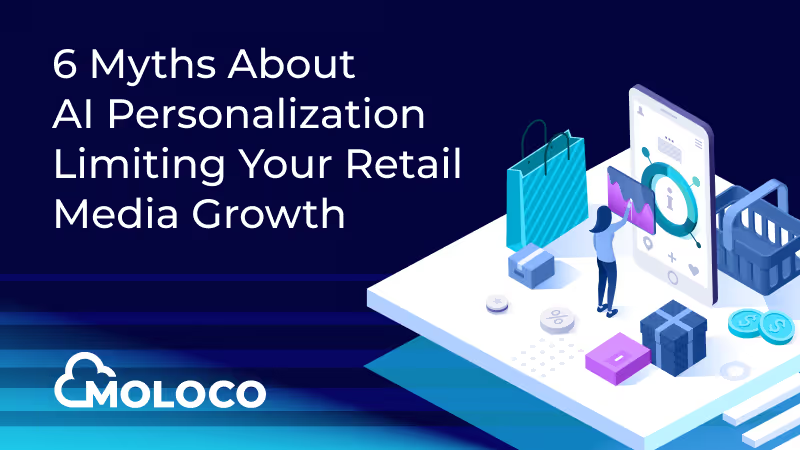Blog Article
Online retailers and marketplaces are increasingly adopting advertising as a key strategy, recognizing its potential to drive traffic and generate significant profits. The strategic shift to building an advertising business not only enables companies to make a compelling profit pool but also brings about a myriad of advantages for users, sellers, merchants, brands, and, of course, the marketplace and retailers themselves.
To understand why building an ads business is a strategic move for online retailers and marketplaces, we’ll examine the key components to illustrate its impact and how to effectively leverage it.
By integrating an ML-driven advertising model, online retailers and marketplaces can enable product recommendations through advertisements to suit individual user preferences. This enables broader discovery of brands while increasing profitability. In addition, ad personalization improves the overall user experience to create a more engaging and relevant shopping journey. Users are more likely to discover products they genuinely desire, fostering customer satisfaction and loyalty.
The inclusion of advertising services opens up a new avenue for sellers and merchants to promote their products on the retailer or marketplace platform. Through targeted ads, businesses can reach a wider audience that is specifically interested in their offerings. The use of machine learning in the ads system boosts product visibility and increases the chances of conversion. Small and medium-sized enterprises, in particular, benefit from a level playing field as they gain access to sophisticated advertising tools that were once exclusive to larger enterprises.
Diversifying revenue streams is compulsory for long-term sustainability for online retailers and marketplaces. Engaging in the ads business allows these platforms to tap into a high-margin revenue source beyond their traditional trading business.
An ads business provides valuable data insights to refine marketing strategies, optimize user experiences, and identify emerging trends. Online retailers can harness the power of data analytics to understand consumer behavior, enabling them to make informed decisions that benefit users and sellers. Retailers and marketplaces can also share this data with sellers and advertisers, allowing them to make more informed decisions about their business.
In a highly competitive e-commerce landscape, diversification is key to staying relevant. As sellers establish success in the marketplace, it attracts a broader seller community with more diverse products that expand the marketplace catalog. This, in turn, increases demand by attracting incremental shoppers, solidifying the platform's position as a one-stop shop for both consumers and businesses.
The move of online retailers and marketplaces into the ads business is a strategic shift with profound implications for users, sellers, and the entire ecosystem. By unlocking the synergies between e-commerce and advertising, these platforms create a win-win scenario where personalized experiences, empowered sellers, diversified revenues, and data-driven insights converge. As the digital marketplace continues to evolve, the integration of advertising services emerges as a pivotal strategy for those seeking to thrive in the competitive online commerce.
 🚀 Moloco Commerce Media Helps eCommerce Capture the Holiday Traffic Surge 🎁
🚀 Moloco Commerce Media Helps eCommerce Capture the Holiday Traffic Surge 🎁The holiday shopping season brings a massive surge of high-intent traffic to e-commerce platforms. While this spike offers incredible opportunity, many advertising systems are too slow and static to capitalize fully on the fast-changing shopper behavior.

.avif) Beyond Last-Click: How We Prove Incremental ROAS in Retail Media
Beyond Last-Click: How We Prove Incremental ROAS in Retail MediaGhost bidding reveals true retail media ROI. See how AI-native incrementality testing delivers proven results from 253% to 1,609% incremental ROAS.

 6 Myths About AI Personalization Limiting Your Retail Media Growth
6 Myths About AI Personalization Limiting Your Retail Media GrowthDiscover the truth behind 6 AI personalization myths that are holding back your retail media growth - and how to maximize your performance.

.avif) The Commerce Media Ecosystem: Where Data, AI, and Ecommerce Shopping Converge
The Commerce Media Ecosystem: Where Data, AI, and Ecommerce Shopping ConvergeEverything you want to know about the Commerce Media Ecosystem. Learn how first-party data and AI is used to drive growth for suppliers, digital retailers, and consumers.

